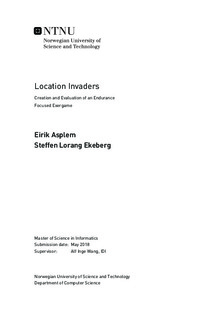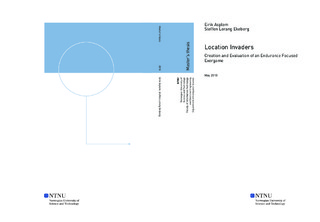| dc.description.abstract | A sedentary and inactive lifestyle is quickly becoming the norm and in combination with the ever growing obesity epidemic is causing a wide range of detrimental effects on the human body. Exergames has risen from the gaming industry as a way to mitigate this issue by combining the traditional gaming experience with physical exercise, in the hopes of cultivating an active lifestyle and adherence to exercise. Exergames are still in a relatively early stage, and this thesis aims to make a contribution in this domain, focusing on an endurance game with elements of high-intensity interval training.
A theoretical introduction to the aforementioned inactive lifestyle and obesity epidemic, alongside a presentation of our research methodology, exercise theory, exergames in general, game mechanisms, and suitable technologies, lay the foundation for implementing an exergame prototype based on endurance training.
The implemented prototype is presented, alongside a discussion of the rationale behind decisions taken in regard to the technological choices, as well as the exercise design. The prototype was then user tested (n=11), in the aims of uncovering the users perception of the games enjoyment, engagement, and motivation, as well as providing insights into the degree of physical activity the game supported. The user testing was conducted using heart rate monitors to track the physical exertion during a game, GPS to track distance traveled and speed, and a questionnaire to provide the necessary insights in the users perception of the game.
The results indicate that the implemented prototype is motivating, enjoyable, and engaging, and provide some degree of endurance training. The provided exercise is currently not at a satisfactory intensity level to be categorized as high-intensity interval training. The tracking of the user location through the use of GPS proved to be too inaccurate, and this had a detrimental effect of the user enjoyment of the game. | |

